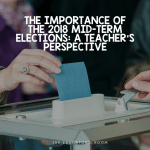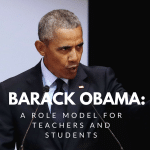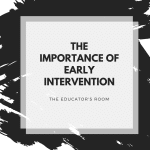By Thomas Courtney
Last year, I wrote about the opportunity we had to change the very way in which our schools operated. Twenty years ago, teaching to the test transformed our educational system. To many, the pandemic was simply the last piece of the puzzle that revealed the picture of what our schools had become. To educators like me, and perhaps to you too, it is now time to teach to the rest of what kids actually need, and no longer to let a standardized test define our practice.
In part 1 we looked at bestselling authors of educational history, pedagogy and policy-those offering game plans based in academia not agenda-from folks like Linda Darling-Hammond, Diane Ravitch, and Zaretta Hammond. We examined how we could change teacher training to fundamentally inspire and empower a new generation of teachers, and pull ourselves out of the grime and filth of two decades of patting teachers on the back for being distributors of good test prep.
We explored the idea of what a school offering quality extracurriculars and rich content in art, humanities, and sciences would do for marginalized communities who so often cannot afford them outside of school. We considered how teacher evaluation would need to change so as to transform testing automatons into the professionals they deserve to be, and we evaluated how privatization hurts communities already ravaged by the twenty-year steamroller that has been NCLB, Race to the Top and ESSA.
But we have more work to do. And as the pages of my calendar have flipped by, it has become more and more alarming to me that we’ve become too idle in our efforts. I am now convinced, here as 2021 comes to a close, that if we teachers do not take up the mantle of changing ourselves, no one else will-even with the crystal clear window that the pandemic gave us into what our children really need, and what they really do not need more of.
As busy as we are these days, this is going to feel like an insurmountable task. But I know of no other group as capable of surmounting any obstacle.
Perhaps you feel the same as I do. If so, here are three more ways, supported by our bestselling educational authors and sound statistical facts, that will help us transform our schools post-pandemic, along with the rationale we can use to advocate for our students, instead of continuing to listen to what someone scared to lose their job tells us to teach.
Change the Criteria That Identifies Successful Principals
Do you know of a principal who retired during the pandemic? I know three. Although each told me they had different reasons for retiring, none left excited about the prospects for new principals taking over their positions. And honestly, who could blame them.
According to survey numbers before the pandemic even hit, 1 in 3 school leaders are suffering from massive stress, and many deal with sleeplessness and depression among other health issues as a direct result of their employment. It isn’t hard to see why the same vice (no pun intended) that squeezes teachers, who are worried about satisfying their parents, their students, their administrators, and always their test scores, might be clenching school principals even harder. Much has been made of the teacher shortage of late, but few people have spoken about the recent loss of good school principals.
But we can change this. And we should. In recent years, ESSA, the Every Student Succeeds Act, was supposed to divert some attention away from scores by allowing states to choose an indicator such as attendance, or suspension rates, or school climate as another measure of school productivity. But ask a principal behind closed doors, or off the record, and you’ll get the same response: test scores are still king, and these indicators now add another layer of stress.
And that means that current principal evaluations, like those for teachers, are now an even greater burden. As one principal said in a piece from Voice of San Diego, “How the heck are you going to be judged on all of that at the same time? And who would want to go to a lower-performing school?” Add a pandemic, and the social and emotional needs of a school full of kids and employees, and you’ve got the very recipe for overwhelming a school leader.
Instead, evaluations should and can be a larger leap for our school leaders, and should and can entice, not deter, good principals from choosing schools that might otherwise need them. But that’s not going to happen when test scores are still a large part of an administrator’s evaluation. School leaders who care about our children, want to lead with professionalism and integrity, deserve better than to be judged solely on the merits of their school’s test scores or attendance, and so do their kids.
Why not measure a school’s climate with surveys to parents, parents who can judge for themselves what matters in their community? Why not create a rubric where robust and rich academic, social and emotional programs are emphasized? Why not measure student interest, engagement, and safety? Why not invite parents, and students from the community to create evaluations and see where test scores lie on their priority list? Why not create a pathway for principals seeking a higher evaluation that includes robust and rich opportunities for kids like field trips, and after-school enrichment opportunities, or for offering rich training for teachers? The answer is simple: It would be too much to do this ON TOP of test scores. And so, despite states spending millions on administering surveys that show fundamental disparities between what parents, kids, and site leaders feel is important at their school, it isn’t considered.
But teachers want to teach the rest now, and every principal I speak with wants their schools to be places where they do not simply teach to a test. But that is still the principal’s bottom line. Until it is changed, marginalized communities battling poverty and prejudice will never attract those wanting to transform their schools by anything other than test scores.
Change the Way We Assess Students
Debate and strong conversation has now begun over new grading policies, from California to Florida and every state in between. In our current climate, sadly much of this conversation has turned to agenda, rather than problem solving. The vice of test scores grips our students hardest of all. It also means that what they learn will be overly dependent on how well we educators can predict they will do.
And regardless of where the dust settles on new grading policies, the use of a single exam at the end of the year to judge our students must now be a thing of the past. This can be, and in my view must be, where teacher voices are the loudest. Settle on portfolios, settle on mastery scales, settle on allowing students to make up work so they are not labeled failures at a young age. Whatever we settle on collectively for new grading systems state to state, we must also collectively realize that to continue to allow our testing regime to dominate what we must teach means that no new grading system will really matter. It’s a bandaid, on a wound far too massive for bandaids.
We must therefore change the way we assess kids, but in order to do that we must stop assessing and evaluating kids, and by extension their teachers, principals, schools, and communities, simply because of one yearly exam. We can’t dress the wound of student assessment without stopping the bleeding that is high stakes testing.
Monitor the Rise of Privatization and Opportunists
In 2009, as I’ve written about in Part 1, Race to the Top transformed large urban districts by dangling cash above the heads of cash strapped superintendents-if only they’d allow more private charter schools to operate. Arnie Duncan, then the Secretary of Education, was given five billion dollars to entice schools to give a great experiment of sorts by allowing charters, who he considered hotbeds of innovation, to raise test scores. Since then, charters have been a collective failure in test scores, paying and retaining quality teachers, and in creating dependable community institutions.
Many have straight-up targeted marginalized communities, sending out false advertisement, giving false promises. Like the picture above a customer’s head at a fast-food restaurant, what they promise, is not often what they deliver. Drawing money away from public schools, the neediest schools that they draw kids from, now struggle harder to afford the programs and personnel to run them. Not surprisingly, Duncan’s initiatives sparked a nationwide business opportunity for those wishing to cash-in. From K12 virtual academies to for-profit charter schools where the school credit card pays for plane rides and vacations, these businesses fare worse nationwide on test scores-the very thing that increasing their share of state and federal dollars was supposed to magically fix.
It’s time to curtail charter schools, especially online virtual academies, and other business interests, and send the dollars they’ve hijacked to our public schools for the rest of what our public school kids, over 90% of all kids nationally, need.
Call Spades, Spades
As 2022 approaches and the news reels introduce us to variant after variant, another year of uncertainty approaches. But we are teachers, and we know what the students in our classrooms need hasn’t changed, it’s just become more necessary to give it to them. Educators now know in our bones, and honest politicians do too, that we can’t do that when we are judged by how well we prepare for and administer a reading and math test to the exclusion of all else. Nor can we transform the way our schools run for them, if we continue to evaluate our school leaders with a bottom line tied to these scores. Finally, if we really want to transform schools we must call a spade a spade, and speak up about what privateers attempting to cash in on our students are doing to our ability to give kids what they need in our public school system.
Now more than ever, we must give kids the rest they have always deserved, and we must explain with wide-open mouths to anyone who will listen why we knew transformation was needed long before the pandemic arrived.






